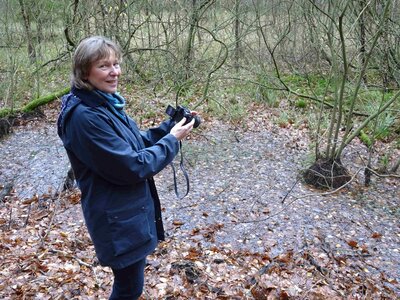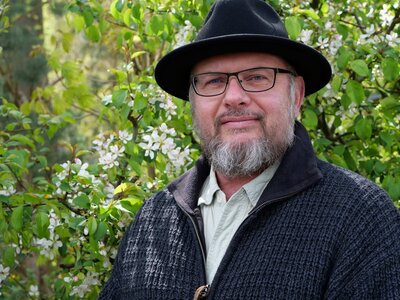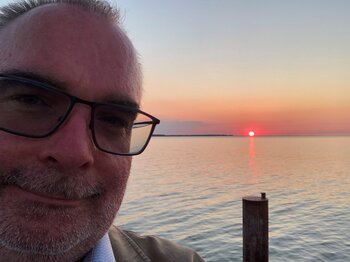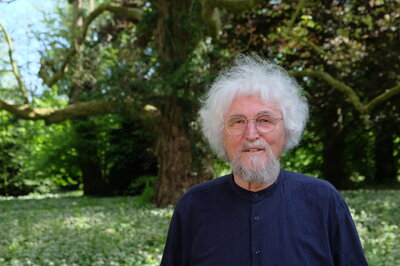Scientific Advisory Board
The Scientific Advisory Board of the Succow Foundation is a specialised advisory body. It makes recommendations for the Foundation's activities and advises the management and the Foundation Board on fundamental technical and interdisciplinary issues, including scientific work and national and international cooperation.
Prof. Dr. Hans Dieter Knapp
Chair
Prof. Dr. Hans Dieter Knapp is geo-botanist and landscape-ecologist. He is one of the initiators of the Eastern German national park program and the International Academy for Nature Conservation Island of Vilm. Until his retirement he has been director of this branch office of the German Federal Agency for Nature Conservation. As an honorary professor he also lectures at the Greifswald University. He initiated the “European Beech Forest Initiative”, he was instrumental in the nomination of beech forests of Germany and Europe to the World Heritage List of UNESCO and involved in further nominations in Russia, Mongolia, Iran and Georgia. His focus within the foundation lies on projects of international cooperation in Eurasia an he is a long-standing member of the Foundation Board.
Prof. Dr. Vera Luthardt
Dep. Chair

Prof. Dr. Vera Luthardt is a biologist. From 1993-2024, she was a professor at the Eberwalde University for Sustainable Development in the Department of Vegetation Science and Applied Plant Ecology, where she was actively involved in teaching and applied research. Her fields of research are broadly based in the context of nature conservation, but focus on peatland management and environmental monitoring under the slogan ‘Knowledge grows from observation’. From 2012-2024, she headed the scientific advisory nature conservation council at the Brandenburg Ministry of the Environment. Together with the Michael Succow Foundation, the National Natural Landscapes and Prof. Dr Pierre Ibisch, she initiated the biosphere.centre and then the Biosphere Reserves Institute, which has now officially become a UNESCO institute, as well as the Biosphere Reserves Management course.
What she finds particularly challenging and indispensable is the ecosystemic view of landscape as a unit and, in this sense, integrated and integrative nature conservation action from concept to implementation, which is orientated towards functional criteria and enables adaptive handling of the unpredictability of changing framework conditions.
Dr. Lutz Fähser

Dr. Lutz Fähser was a member of the Foundation board until he was 75 years old. Until his retirement at the end of 2009, he headed the Lübeck City Forestry Office, where he introduced the social-ecological concept of "near-natural forest use" in 1994. Lutz Fähser received his doctorate in forestry business administration in Freiburg i.Br. in 1977 and was forestry office manager in the state, municipal and private services. He has also been active in around 30 development projects on all continents. On the side, he supports local citizens' initiatives in Germany that would like to see forests managed in a different way that is closer to nature. In the Michael Succow Foundation, he was jointly responsible for all projects in which forests are an important component.
Prof. Dr. Dr. h.c. Pierre Ibisch

Prof. Dr Dr h.c. Pierre Ibisch is a habilitated biologist, was active in biodiversity research, nature conservation and development cooperation in South America for many years and has been working at the University for Sustainable Development (HNEE) since 2003/2004. He heads the Centre for Econics and Ecosystem Management there. He swapped his professorship for ‘Nature Conservation’ with the newly created professorship for ‘Social Ecology of Forest Ecosystems’ as part of the introduction of the ‘Social Ecological Forest Management’ degree programme, which he founded. He also founded the Master's programme ‘Global Change Management’ at HNEE.
He holds an honorary doctorate from the National Forestry University of Ukraine in Lviv. Together with Prof. Vera Luthardt, the Michael Succow Foundation and other partners, he first founded the biosphere.centre and then the Biosphere Reserves Institute, which has now officially become a UNESCO institute, as well as the Biosphere Reserves Management degree programme.
In applied projects around the world, he and his team have repeatedly cooperated with the Michael Succow Foundation, for example on ecosystem-based adaptation to climate change in Ukrainian biosphere reserves. Among his favourite projects were the contributions to the expansion of the serial UNESCO World Heritage Site of Europe's ancient beech forests. Pierre Ibisch is a highly publicised scientist who is committed to more effective nature conservation and ecosystem-based management of forests.
Prof. Dr. Haik Thomas Porada

Prof. Dr. Haik Thomas Porada is a historian and geographer. He studied history, geography and Scandinavian studies in Greifswald, Marburg an der Lahn and Stockholm and received his doctorate in Greifswald with a thesis on the significance of fishing for early modern state organisation on the Southern Baltic Coast. In 2002, he took over the editorship at the Leibniz-Institut für Länderkunde (IfL) of the traditional book series ‘Landscapes in Germany’, which has been published jointly with the Saxon Academy of Sciences in Leipzig and has been communicating regional studies knowledge to a broad public since 1957.
Since 2020, he has headed the Department of Theory, Methodology and History of Geography at the IfL. He has been teaching historical geography at the Otto Friedrich University of Bamberg since 2016. Following his involvement in the civic movement in Western Pomerania in 1989/90, he has volunteered in the field of researching and communicating regional and church history as well as landscape genesis in the Baltic Sea region, including currently in the Working Group for Historical Cultural Landscape Research in Central Europe (ARKUM), on the Board of Trustees of the Pomeranian Foundation for Historical Education and on the Presidium of the German-Polish Textbook Commission.

